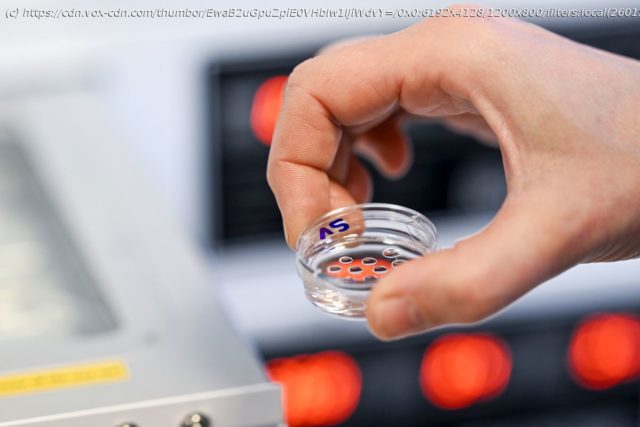Did Alabama’s Supreme Court just ban IVF treatments?
The moment the US Supreme Court released its decision overruling Roe v. Wade, pretty much everyone who closely follows constitutional law wondered which rights would be next on the chopping block. Justice Clarence Thomas stoked these fears with a concurring opinion calling for the Court to “reconsider” the rights to contraception, marriage for same-sex couples, and the right to choose who you have sex with (and whether those sexual partners share your gender). Justice Brett Kavanaugh, meanwhile, published his own concurrence claiming many of these rights were safe.
In Alabama, at least, it now appears likely that the right to conceive a child through in vitro fertilization will be the next to fall.
On Friday, that state’s Supreme Court released an opinion holding that frozen, fertilized embryos stored in a cryogenic facility count as a “child” under the state’s law permitting lawsuits while a child is killed. As the Medical Association of the State of Alabama warned the state’s justices before they handed down this decision, this decision is likely to “substantially increase” the cost of a common fertility treatment pursued by many parents who have trouble conceiving. Indeed, it could make these costs “prohibitive” (or, at least, even more prohibitive than they already are).
In vitro fertilization (“IVF”) is a process where human eggs are fertilized outside of the womb, and later implanted in a human uterus. Typically, more eggs are fertilized than will actually be used, and the unused eggs are frozen. Among other things, this allows the unused eggs to be used later if the couple wants to have another child, and it also allows them to be used if the first attempt to implant some of the eggs does not take.
At some point, however, the stored eggs are destroyed or used in medical research. Moreover, according to the Mayo Clinic, “not all embryos will survive the freezing and thawing process.” So the destruction of at least some embryos is a normal part of IVF.
The potential implications of the Alabama Supreme Court’s decision in Burdick-Aysenne v. Center for Reproductive Medicine, the decision holding that Alabama’s Wrongful Death of a Minor Act extends to frozen embryos, are pretty obvious. If it is illegal to destroy an embryo, then it is unclear if IVF can happen. And, if it can happen, medical facilities may have to pay outlandish costs to store frozen embryos long after it is clear that no one will ever use them.
That said, there are some quirks in Alabama law that may prevent this decision from reaching too far. The Wrongful Death of a Minor Act only permits civil lawsuits in limited circumstances. And Alabama’s criminal homicide law applies only to “an unborn child in utero” — meaning that the embryo or fetus is inside a uterus — so it is far from clear that someone may be criminally prosecuted for homicide if they harm an embryo stored in a cryogenic facility. Burdick-Aysenne involves activity that should be illegal, just not necessarily under Alabama’s wrongful death statute
The facts underlying the Burdick-Aysenne case are very unfortunate, and they allegedly involve negligent actions that very much should have triggered a lawsuit.
Home
United States
USA — Science The Alabama Supreme Court opinion holding that embryos are children, explained






